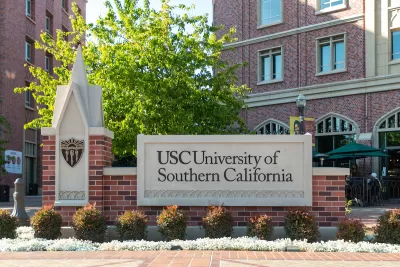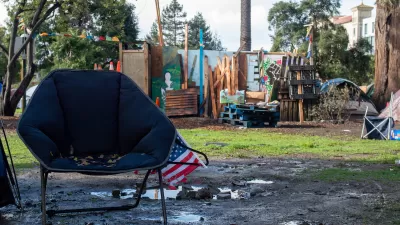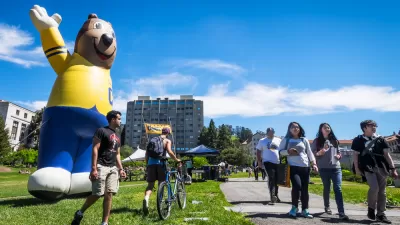Opponents to a new university housing project cited a recent Berkeley case in which noise pollution was successfully used to deny an exemption from environmental review.

An appellate court in Southern California used a legal precedent set in Berkeley to deny a request for an exemption from environmental review for a proposed housing project near the University of Southern California in downtown Los Angeles, reports Matt Brown in The Daily Californian. The new ruling “is focused on a proposed rooftop deck, which appellants worry will generate too much noise.” In Berkeley, opponents of a new student housing development relied on potential noise to gain a legal victory over the university in a contentious battle, forcing the university to deny admissions to thousands of potential students.
The city of Los Angeles originally granted the exemption for the infill project, which is proposed for a 2.8-acre lot less than a mile from the USC campus housing a building previously used by the university as offices. “The city intended to demolish the existing site and parking lot to make way for a seven-building residential apartment complex. Six of the buildings were planned to be four stories with a combined 100 five-bedroom apartments and two three-bedroom apartments, and the seventh building was planned to be a four-story clubhouse with a variety of amenities for residents.”
More on the Berkeley story:
- Lessons From People’s Park
- UC Berkeley Commits to Supportive Housing Project in People's Park
- A Fight For the Future of People's Park
Correction: This article originally indicated that the project is a USC housing project and that lot in question is owned by the university. This is incorrect—USC previously used a building on the lot as offices, but is not involved with the proposed housing project.
FULL STORY: Noise pollution precedent set by People’s Park case blocks housing in LA

Maui's Vacation Rental Debate Turns Ugly
Verbal attacks, misinformation campaigns and fistfights plague a high-stakes debate to convert thousands of vacation rentals into long-term housing.

Planetizen Federal Action Tracker
A weekly monitor of how Trump’s orders and actions are impacting planners and planning in America.

In Urban Planning, AI Prompting Could be the New Design Thinking
Creativity has long been key to great urban design. What if we see AI as our new creative partner?

Cal Fire Chatbot Fails to Answer Basic Questions
An AI chatbot designed to provide information about wildfires can’t answer questions about evacuation orders, among other problems.

What Happens if Trump Kills Section 8?
The Trump admin aims to slash federal rental aid by nearly half and shift distribution to states. Experts warn this could spike homelessness and destabilize communities nationwide.

Sean Duffy Targets Rainbow Crosswalks in Road Safety Efforts
Despite evidence that colorful crosswalks actually improve intersection safety — and the lack of almost any crosswalks at all on the nation’s most dangerous arterial roads — U.S. Transportation Secretary Duffy is calling on states to remove them.
Urban Design for Planners 1: Software Tools
This six-course series explores essential urban design concepts using open source software and equips planners with the tools they need to participate fully in the urban design process.
Planning for Universal Design
Learn the tools for implementing Universal Design in planning regulations.
Appalachian Highlands Housing Partners
Gallatin County Department of Planning & Community Development
Heyer Gruel & Associates PA
Mpact (founded as Rail~Volution)
City of Camden Redevelopment Agency
City of Astoria
City of Portland
City of Laramie





























